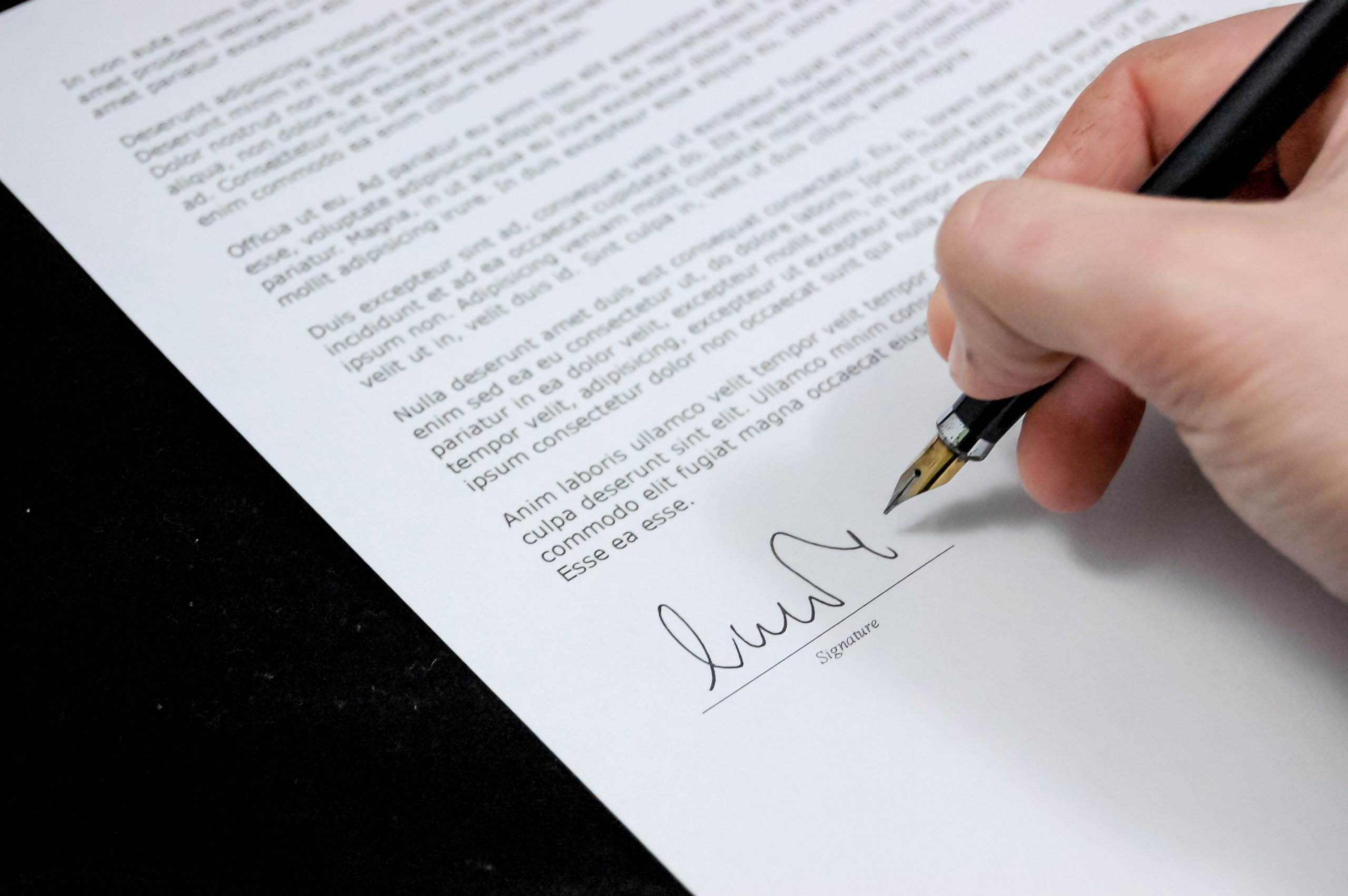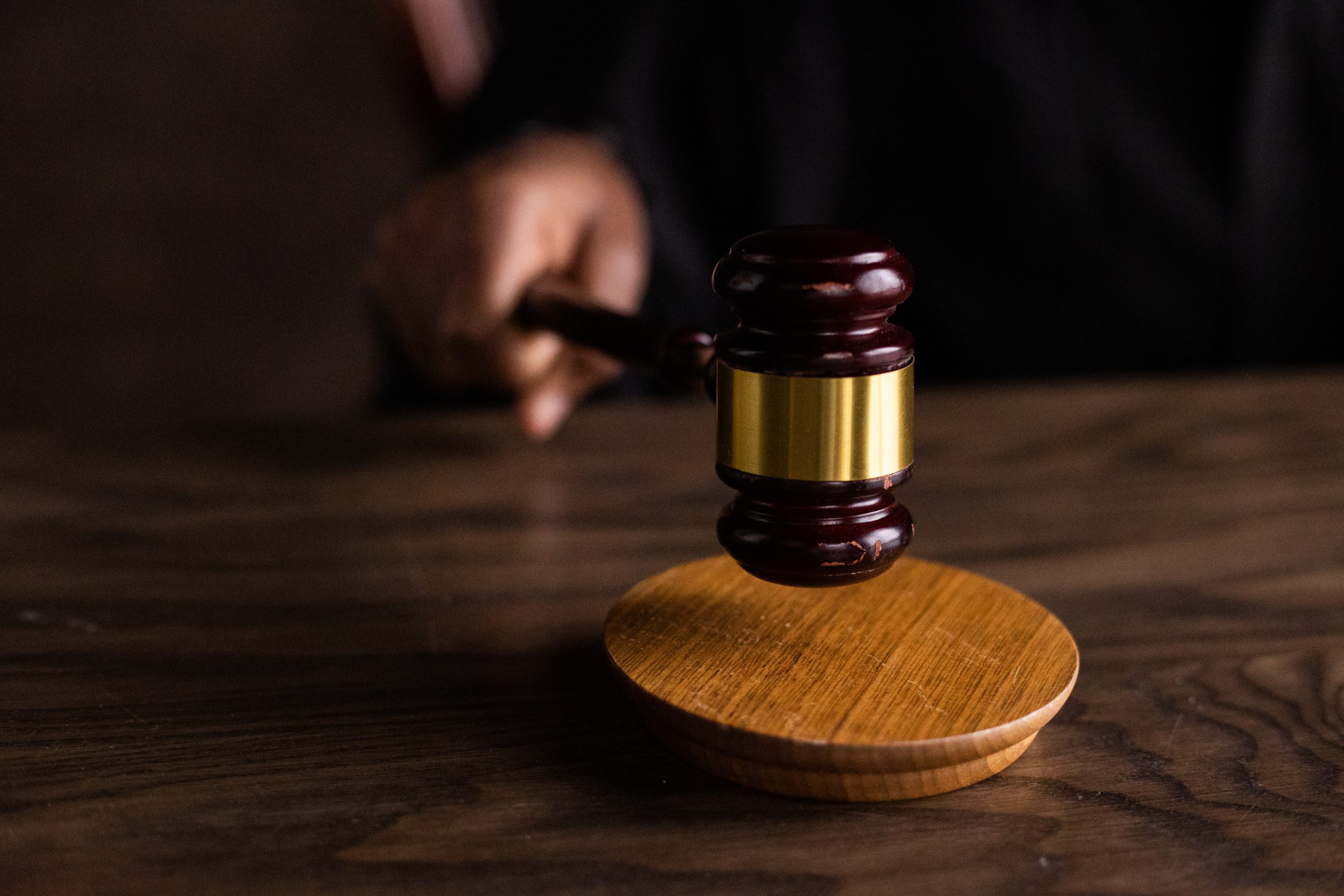Thinking about buying a foreclosed property? If so, it’s important to understand the legal risks and rewards that come along with this type of investment. While purchasing a foreclosed property can offer significant financial benefits, such as acquiring a property below market value, it also comes with its fair share of legal complexities. From title issues and liens to potential eviction proceedings, navigating the legal landscape surrounding foreclosed properties can be quite challenging. In this article, we will explore the various legal risks and rewards associated with buying a foreclosed property, ensuring that you are well-informed before making any decisions. So, grab a cup of coffee, get comfortable, and let’s delve into the world of foreclosed property investments together!

Understanding Foreclosed Properties
What is a foreclosed property?
A foreclosed property is a property that has been repossessed by a lender, typically a bank or mortgage company, due to the owner’s failure to make timely mortgage payments. When a homeowner falls behind on their mortgage payments, the lender has the right to initiate foreclosure proceedings, which ultimately result in the property being taken back by the lender. These properties are then often sold at a discounted price in order for the lender to recoup their losses.
How does the foreclosure process work?
The foreclosure process typically begins when the homeowner fails to make several consecutive mortgage payments. Once the lender determines that the homeowner is in default, they will send a notice of default to the homeowner, which outlines the amount owed and provides a specific timeframe for the homeowner to bring the mortgage payments current. If the homeowner fails to do so, the lender will file a foreclosure lawsuit and the property will be sold at a foreclosure auction. If the property does not sell at auction, it will become a bank-owned property, also known as real estate owned (REO) property.
Why do people buy foreclosed properties?
There are several reasons why people buy foreclosed properties. One of the main reasons is the potential for a good deal. Foreclosed properties are often sold at a lower price than their market value, making them attractive to buyers who are looking for a bargain. Additionally, some buyers may be interested in purchasing foreclosed properties as investment properties to generate rental income or as fixer-uppers that they can renovate and sell for a profit.
Benefits of buying a foreclosed property
Buying a foreclosed property offers several benefits. First and foremost, it provides an opportunity to purchase a property at a lower price than its market value. This immediate equity can be advantageous for buyers who are looking to build wealth through real estate. Additionally, foreclosed properties often come with a clear title, as the lender has typically already removed any liens or encumbrances during the foreclosure process. This can save buyers time and potential legal headaches. Lastly, buying a foreclosed property allows buyers to potentially enter the real estate market at a lower cost, making home ownership more accessible.
Potential Legal Risks of Buying a Foreclosed Property
Unclear title issues
One of the potential legal risks of buying a foreclosed property is the possibility of unclear title issues. During the foreclosure process, it is possible that certain liens or encumbrances may have been overlooked or not properly addressed. This could result in a buyer unknowingly inheriting these issues and being responsible for resolving them. It is crucial for buyers to conduct a thorough title search to ensure that the property’s title is clear before purchasing a foreclosed property.
Unforeseen liens and debts
Another legal risk associated with buying a foreclosed property is the potential for unforeseen liens and debts. In some cases, the previous homeowner may have accumulated debts or liens, such as unpaid property taxes or mechanic’s liens, that are not resolved during the foreclosure process. Buyers must carefully review the property’s history and conduct a comprehensive investigation to identify any outstanding debts or liens that may affect the property.
Occupancy and eviction concerns
When purchasing a foreclosed property, there may be occupancy and eviction concerns to consider. If the previous owner or tenants have not yet vacated the property, the buyer may need to navigate the eviction process to gain full possession. It is crucial to understand the local laws and regulations regarding eviction and to work with an experienced attorney to ensure a smooth transition.
Deficiencies and property condition
Foreclosed properties are often sold in “as-is” condition, which means that the buyer is responsible for any repairs or renovations needed. It is important for buyers to thoroughly inspect the property and assess any potential deficiencies or issues. Failure to do so could lead to unexpected expenses and legal disputes down the line. Conducting a detailed property inspection and obtaining professional assessments can help buyers make informed decisions and avoid costly surprises.
Importance of Due Diligence
Conducting a title search
When considering the purchase of a foreclosed property, conducting a title search is essential. This involves reviewing the property’s chain of title, which includes any transfers of ownership, liens, or encumbrances. A title search can reveal any potential issues or claims on the property, helping buyers make an informed decision and potentially avoiding legal complications in the future.
Reviewing property history and inspection reports
Buyers should thoroughly review the property’s history and obtain inspection reports to assess its condition. Property history may reveal any past or ongoing issues, such as environmental hazards or structural problems, that could impact the buyer’s investment. Inspection reports provide valuable information about the property’s current state and any necessary repairs or renovations.
Understanding local foreclosure laws
Each state has its own laws and regulations regarding foreclosure. It is crucial for buyers to understand the specific requirements and procedures in their local area. This knowledge can help buyers navigate the foreclosure process, anticipate potential challenges, and ensure compliance with all legal requirements.
Evaluating tax obligations and assessments
Buyers should also evaluate any outstanding tax obligations or assessments associated with the foreclosed property. This includes reviewing the property’s tax history and verifying the current tax status. Understanding and accounting for these financial obligations is important to avoid any future legal issues or financial burden.
Working with a Real Estate Agent or Attorney
Benefits of professional assistance
Working with a real estate agent or attorney experienced in foreclosure transactions can be highly beneficial. These professionals have a deep understanding of the complexities and potential risks involved in buying foreclosed properties. They can provide guidance, conduct thorough due diligence, and ensure that all legal requirements and timelines are met throughout the process.
Identifying potential red flags
Experienced professionals can assist buyers in identifying potential red flags or issues that may not be immediately apparent. They can review property history, title records, and inspection reports to uncover any hidden problems or concerns. Having a knowledgeable advocate on your side can help protect your interests and minimize the risk of encountering legal difficulties post-purchase.
Negotiating purchase terms and conditions
Real estate agents and attorneys can also assist buyers in negotiating favorable purchase terms and conditions. They have the expertise to draft or review purchase agreements, ensuring that the buyer’s interests are protected. Additionally, they can help buyers navigate any counteroffers or negotiations that may arise during the buying process.
Navigating legal paperwork
Buying a foreclosed property involves a significant amount of legal paperwork. From purchase agreements to disclosure forms, there are numerous documents that need to be reviewed, signed, and filed correctly. Working with a real estate agent or attorney can help buyers navigate this paperwork, ensuring that all necessary documentation is complete and filed in a timely manner.
Financial Considerations
Determining a budget
Before buying a foreclosed property, it is important to determine a budget. This includes considering the purchase price, as well as any necessary repairs or renovations. Buyers should carefully assess their financial situation and consult with a financial advisor to determine an appropriate budget that takes into account all potential costs associated with buying and owning a foreclosed property.
Financing options for foreclosed properties
Buyers have several financing options when it comes to purchasing a foreclosed property. Traditional mortgage loans, cash purchases, or specialized foreclosure loans are all possible avenues to explore. It is important to research and compare different financing options to ensure that buyers choose the option that best fits their financial situation and goals.
Calculating potential return on investment
For buyers interested in purchasing a foreclosed property as an investment, calculating the potential return on investment (ROI) is crucial. This involves assessing the property’s market value, projected rental income, and estimated expenses, including mortgage payments, taxes, insurance, and maintenance costs. By carefully analyzing these factors, buyers can determine whether the potential ROI aligns with their investment goals.
Budgeting for renovations and repairs
Foreclosed properties often require significant renovations or repairs. Buyers should budget for these expenses before purchasing a property, taking into account potential costs for contractors, materials, permits, and inspections. Being financially prepared for these expenses can help buyers avoid overextending themselves and ensure that the property is brought up to a desirable condition.
Steps to Buy a Foreclosed Property
Searching for foreclosed properties
There are various resources available for finding foreclosed properties, including online listings, public notices, real estate agents, and local government organizations. Buyers should take advantage of these resources to identify properties that meet their criteria and align with their budget. Thoroughly researching and comparing different properties can increase the chances of finding a suitable foreclosure opportunity.
Attending foreclosure auctions
Foreclosure auctions are another avenue for purchasing foreclosed properties. These auctions provide buyers with the opportunity to bid on properties that are being sold by the lender or auctioneer. It is important to research and understand the specific rules and procedures of foreclosure auctions in the local area before participating. Attending auctions can be an exciting and potentially rewarding way to acquire a foreclosed property at a competitive price.
Making an offer on a bank-owned property
Bank-owned properties, or REO properties, are foreclosed properties that did not sell at auction and have been taken back by the lender. Buyers can make offers on these properties through the bank or the bank’s designated real estate agent. It is important to submit a competitive offer that takes into account the property’s market value, condition, and potential repairs needed. Working with an experienced real estate agent or attorney can help buyers navigate this negotiation process successfully.
Navigating the foreclosure sale process
Once an offer has been accepted or a winning bid has been made, buyers must navigate the foreclosure sale process. This involves completing all necessary paperwork, including the purchase agreement and any addendums or disclosures. Buyers should also conduct a final inspection of the property before closing to ensure that it is in the condition they expect. Navigating the sale process with the assistance of a real estate agent or attorney can help ensure a smooth and legally compliant transaction.

Post-Purchase Responsibilities
Transferring utilities and insurance
After purchasing a foreclosed property, it is important to transfer utilities and obtain appropriate insurance coverage. Buyers should contact utility companies to arrange for the transfer of services into their name. Additionally, buyers should obtain homeowners insurance to protect their investment. Working with a real estate agent or attorney can help facilitate these processes and ensure a smooth transition.
Resolving outstanding debts and liens
Post-purchase, buyers may discover outstanding debts or liens that were not properly addressed during the foreclosure process. Resolving these issues is crucial to protect the buyer’s ownership rights and avoid any further legal complications. An experienced attorney can assist in identifying and addressing any outstanding debts or liens, negotiating with creditors, and resolving these matters in a legal and efficient manner.
Managing tenant turnover or eviction
If the foreclosed property has tenants in place, the new owner may need to navigate the process of tenant turnover or eviction. This involves understanding and following local laws and regulations regarding rental properties, providing proper notifications to tenants, and potentially working with an attorney to ensure a smooth transition. It is important to address tenant-related matters in a legal and ethical manner to avoid any potential legal disputes.
Maintaining the property
As the new owner of a foreclosed property, it is important to take care of ongoing maintenance and repairs. Regular maintenance can help preserve the value of the property and minimize potential issues in the future. It is advisable to establish a maintenance schedule and budget for necessary repairs to ensure the property is kept in good condition.
Tips for a Successful Foreclosure Purchase
Research the local market
Before diving into the process of purchasing a foreclosed property, it is essential to thoroughly research the local market. This includes understanding property values, rental rates (if applicable), and market trends. By having a solid understanding of the local market, buyers can make informed decisions and potentially identify favorable investment opportunities.
Work with experienced professionals
Buying a foreclosed property can be a complex and legally intricate process. Working with experienced professionals such as real estate agents and attorneys who specialize in foreclosures is highly recommended. These professionals have the knowledge and expertise to guide and protect buyers throughout every stage of the process.
Be patient and persistent
Finding the right foreclosed property and navigating the purchase process can take time. It is important to be patient and persistent in the search, as well as in negotiations and due diligence. By remaining patient and persistent, buyers can increase their chances of finding a suitable property and securing a successful purchase.
Understand the potential risks and rewards
Buying a foreclosed property can offer substantial financial benefits, but it is crucial to understand the potential risks as well. Conducting thorough due diligence, working with professionals, and being aware of the legal risks involved can help buyers make informed decisions and protect their interests.

Legal Remedies for Purchasing a Problematic Foreclosed Property
Breach of contract claims
If the seller fails to meet their obligations as outlined in the purchase agreement, the buyer may have grounds for a breach of contract claim. This can arise if, for example, the seller misrepresents the condition of the property or fails to resolve agreed-upon repairs before the sale. In such cases, buyers may be entitled to remedies such as specific performance, monetary damages, or contract rescission.
Fraud or misrepresentation lawsuits
If the buyer discovers that the seller engaged in fraudulent activity or made material misrepresentations about the property, they may have legal grounds to file a lawsuit. Fraud or misrepresentation claims can arise if, for example, the seller concealed major defects or withheld information about liens or encumbrances. Consulting with an attorney is crucial in determining the viability of such a lawsuit and seeking appropriate remedies.
Title insurance claims
If title issues arise after the purchase of a foreclosed property, buyers who obtained title insurance may be able to file a claim to cover the costs of resolving those issues. Title insurance provides protection against defects in the title, including unknown liens, encumbrances, or ownership disputes. Buyers should consult their title insurance policy and work with an attorney to navigate the claims process if necessary.
Negotiating with lenders or sellers
In some cases, buyers who encounter issues with a foreclosed property may be able to negotiate with the lender or seller to reach a mutually beneficial resolution. This could involve renegotiating the purchase price, requesting repairs or concessions, or negotiating the release of liens or other outstanding debts. Having an experienced attorney on your side can be invaluable in these negotiations and in protecting your rights and interests.
Conclusion
Buying a foreclosed property can provide an opportunity to acquire real estate at a discounted price. However, it is essential for buyers to understand the potential legal risks associated with these properties. Conducting thorough due diligence, working with experienced professionals, and understanding the legal landscape can help buyers navigate the process successfully and avoid potential legal difficulties. By taking the necessary precautions and being fully informed throughout every stage, buyers can maximize the rewards of buying a foreclosed property while minimizing the associated legal risks.









